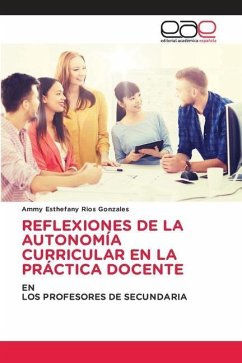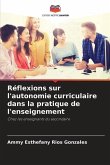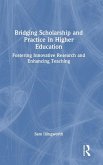This research work corresponds to the quantitative approach, since each stage precedes the next and we cannot skip or avoid steps, although we can certainly define a phase, therefore, it is sequential and evidential. Likewise, a comparison was made of the challenges and difficulties that arise when implementing curricular autonomy (the clubs) between the General Secondary School "José Joaquín Fernández de Lizardi", located in La Magdalena Tlaltelulco and the Technical Secondary School No. 51, located in Tlacomulco.For this purpose, the delimitation of the object of study was carried out, including the problem statement, justification, objectives and research questions. Subsequently, the theoretical foundation is addressed, which includes the historical background, from which the origin and development of secondary education in the international, national and regional context are mentioned.
Bitte wählen Sie Ihr Anliegen aus.
Rechnungen
Retourenschein anfordern
Bestellstatus
Storno








